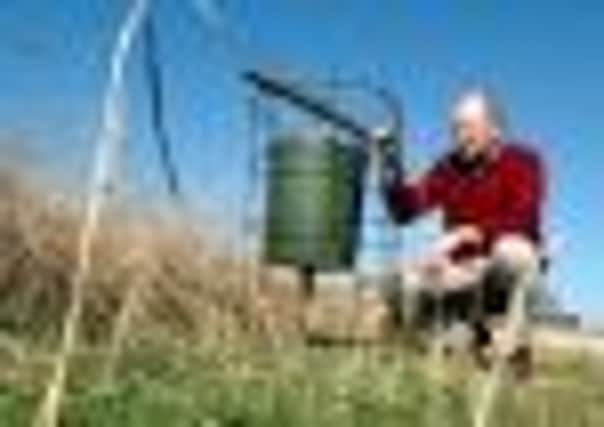EU cuts ‘could spell disaster’ for Sussex’s wildlife


Peter Knight, the manager for the Norfolk Estate, with hundreds of acres of farmland around Arundel and on the South Downs, joined the RSPB in warning the possible cuts to the European and domestic budgets could have “disastrous” consequences on the county’s recovering wildlife population.
Mr Knight, who was the regional finalist in the 2012 RSPB Nature of Farming Award for his achievements in looking after wildlife and the environment while running a productive arable and sheep farm, argued the flourishing wildlife on the estate was in real danger, if funding was axed.
Advertisement
Hide AdAdvertisement
Hide AdHe said: “It would be an absolute disaster if these schemes were to stop.
“There has been a lot of good work that’s been done for wildlife over the last 10 or 20 years, and there is a real danger that all that good work could be undone, while this lifeline remains under threat.”
The coalition of conservation charities and farmers has written to David Cameron expressing its fears, just days before the Prime Minister attends a summit of EU leaders in Brussels to discuss the future of the agricultural budget for the Continent, on Thursday (November 22).
For the last 25 years, many West Sussex farmers have become wildlife champions and have rallied to the plight of some of our most threatened species by creating the conditions they need to survive.
Advertisement
Hide AdAdvertisement
Hide AdUsing payments for wildlife-friendly farming – known as agri-environment schemes – some of these “champions” have reversed population crashes of those species most in trouble – many of which now depend on wildlife-friendly farmers for their future survival.
Gareth Harris, RSPB south east farmland conservation adviser, said: “Without this lifeline, we believe that several species, including the grey partridge, which need farmers to create just the right kind of habitat, would slide inexorably towards oblivion in the UK, and other species, such as butterflies and rare plants, would inevitably decline.”
For the full story, pick up this week’s copy of the Gazette (Thursday, November 15).